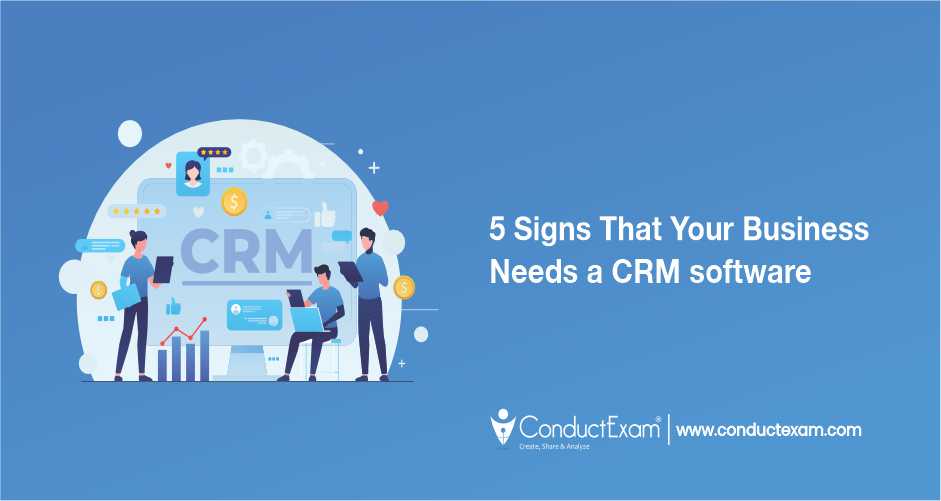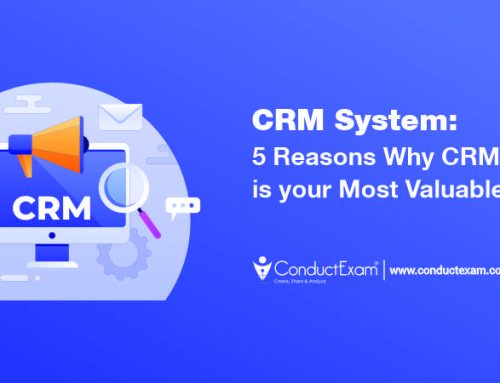Introduction
Since the 1990s, the Customer relationship module has been introduced among the business organizations, as there are no more transactional business possible and the base of relational business with the client has been created. This module affects the growth and benefits gained by the customer and the growth rate of the business, directly or sometimes indirectly. The trends and technologies introduced in the information technology world have developed the system of Sales CRM in such a manner that it can easily carry out the tasks to identify, acquire and retain the customer, and as a result, builds a healthy relationship amongst them.
Multiple definitions of CRM are possible to propose from various aspects. For example, taking the views of the management team of a company into consideration, the CRM can be defined as a way to develop, manage, and maintain a healthy relationship, which is beneficial to the client and also profitable to the company.
Another definition, looking at the IT point of view, can be a platform or an application that is used to assist the crucial business processes like sales, promotional campaigns, ease of execution of planned processes in business, etc. is what a CRM does.
According to Mr. Francis Buttle, who is known to be the first-ever professor who delivered lectures on CRM, it is a merger of business execution plans and workflows, which also helps in connecting the entities like customers, stakeholders, etc.
Hence, the increment in the loyalty of the business customers, and ultimately rise in the profit ratio is what the basic aim of the development of a CRM is.
The components that form a good performance CRM are analysis of
trends in the market, report generation based on analysis of previous customer data, customer support and service module, management of human resources, tracking and managing leads, implementation of marketing strategies, and automation of sales force as well as the workflow.
Some of the reasons for why to deploy a CRM can be:
- Increase in the number of customers
- The satisfaction of customers increases
- Sales go up
- The productivity of the employee improves.
A tool called Sales CRM covers most of the reasons, as mentioned earlier, and hence is known as one of the efficient tools for CRM. We shall discuss this tool further in the upcoming sections.
Also Read: How Sales CRM Is Useful For Your Business?
What is Sales CRM?
As mentioned above, there were differing definitions of CRM based on its utilization in various sectors, and the point of observation being different from varying angles and perspectives. For example, for an employee working for customer support for a product in a company, he might use the CRM to generate and store the complaint tickets to uniquely identify the customers and the status of the actions taken.
For a member of the marketing team, the CRM might be used for storing and analyzing the responses of the customers on the promotional campaigns, be it online ads or generating traffic towards the company website. For the sales team, the CRM is used to streamline the business processes for managing the sales pipeline. Also, the data related to the customers and prospects can be stored keeping security into consideration, and using these services of the sales CRM, one can increase the chances of lead to customer conversion.
Here, we would be discussing the introduction to sales CRM and how can we increase the conversions and hence the sales of a company.
Giving it a general definition, sales CRM does the task of managing the strings that connect the company and its prospects, right from starting the communication till the closure with acceptance.
The strings that were mentioned in the above paragraph can be any person related to the sales department or a software module like the lead management module in the CRM. With a motive to build a good rapport amongst the prospects, CRM has the feature of keeping all the communication records that were ongoing between the sales executive and the prospect. Also, the arrangement of data is made in a systematic order to help the sales executive retrieving it easily for periodic follow-ups. Scheduling reminders, prescheduled and pre-prepared emails, and SMS to be sent to the client can also be set in a CRM.
The process of lead nurturing has also become an easy task with the integration of the lead management system with the CRM. Administration oriented tasks like data structuring can also be automated, which may result in lesser time required to enter the data in the CRM, and as a result, more time be able to be allotted to focus on building relationships with the clients.
A sales representative undergoes a sequence of activities like researching the prospect, cold calling, convincing the client to close the deal by accepting the offer, periodic follow-ups, reminders, negotiations, etc. with a motive to increase the sales conversion ratio. Till now this was done as a manual process by the sales executive themselves.
But a due decrease in performance and efficiency of the executive, assistance was required to decrease the load on the executives, as in manual tasks, things might go out of control if there is any minute mistake in the data of the prospect.
To avoid this, the companies have started deploying CRM to assist these executives and also help to reduce the stress by managing the whole sales conversion process as a standalone system. With the automated assistance provided to the executives, the chances for the occurrence of errors are decreased, and efficient data is stored in the database. It has turned out quite efficient, especially when prescheduled emails and messages are to be sent or reminders are to be set.
Apart from the basic data of the customer, if integrated with social media, CRM can provide overall data of the customers, which might relate to the taste, likes, and dislikes of the customer, that can be used for future reference.
Why Sales CRM Use In Business?
The following are some of the reasons why sales CRM are an important tool to be implemented in a company:
- Administrative tasks like generating quotations, forecasting the campaigns, the process for order completion, etc. can be completed automatically using the tool.
- Categorization of leads can be done properly so that the promotional messages sent to the leads reach the relevant or the concerned person only.
- When there are a large number of leads in your email list, the chances of missing out on the important leads are possible. So, this tool would help automated emails and messages sent to the leads.
- Regular follow-ups are possible.
- If the customer data is spread across various storage applications, accommodating them would be a difficult task. Hence, there is a need for a centralized database.
- As discussed above, the data of the prospects are spread across the organization. So, it might be possible that the same lead might be contacted twice by two executives for the same product, but with different strategies. It not only wastes time but also degrades the rapport of the business organization.
- Being able to access the data anywhere and anytime, the executives now can work from anywhere they want. It was not possible earlier due to the unavailability of data.
- Authorized access to the data prevents the chances of data leaks and security breaches.
So these were some of the reasons why one should deploy sales CRM in their companies, mainly for reducing the stress and workload of sales executives as well as sales managers.
Recommended For You: Does Sales CRM Increase Your Business Revenue?
Importance of Sales CRM
In this section, we would be discussing the importance of sales CRM once it is deployed in a company. These are listed as follows:
-
Daily leads management by sales CRM:
The sales CRM has a lead management module, which allows the executive in getting the information about the leads from different sources, classify this information based on the interest of the leads, purchase patterns, preferences, taste, etc.
So, with this module, the implementation of the sales funnel now has become easier.
-
Management of Activities:
Keeping records of daily activities of the executive, scheduled follow-ups, reminders of follow-ups to be set for the executive, etc. can be easily managed by the sales CRM.
-
Central data storage:
During the research phase of acquiring leads, whatever data is collected by the executive is being stored in the sales CRM, which has centralized database functionality, which can be accessible only to the authorized users.
-
Sales Pipeline Management:
A method that classifies the details of customers as well as prospects into segments, which would be helpful for the sales executive in avoiding getting stuck up with messy and unstructured data, is called a sales pipeline.
It helps executive in segmenting the levels of communication and the sales conversion cycle, and with the help of this, one can see which lead has been occupied which level of the cycle
-
Email Tracking:
It can be useful in knowing whether the lead opens the emails you are sending to the lead or not. It also depicts the data regarding the interest of the lead for our product.
-
Social media Integration:
When you have integrated your business’ all types of social media accounts with the CRM, you can get a detailed analysis of the visitors and viewers of your account, as well as the people liking your posts, commenting, etc.
Conclusion
In this blog, we came to know the basic concepts of sales CRM, along with the importance of deploying in an organization. I hope this information helps!






Leave A Comment